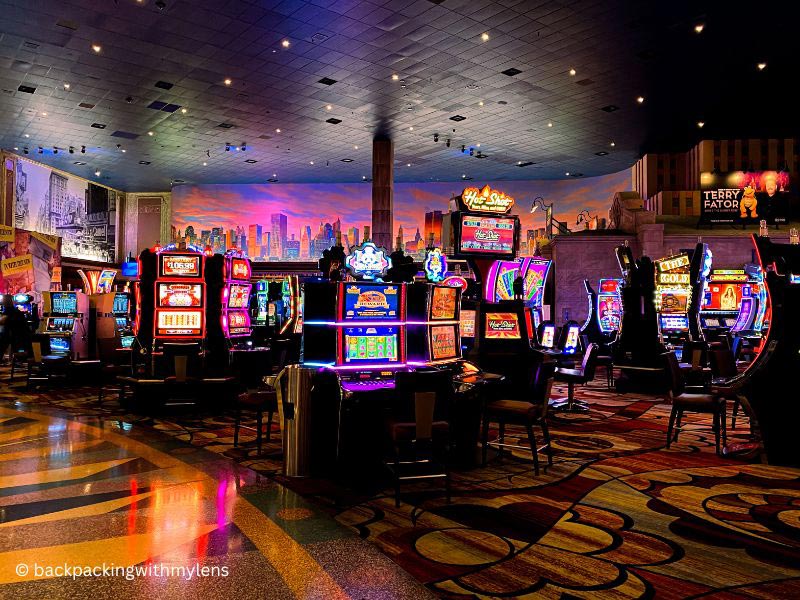A Societal Influence of Gambling Activities Worldwide

Casino games have long been a captivating entertainment option, drawing countless of players from varied cultures around the globe. From the opulent casinos of Vegas to the bustling gambling halls of the Chinese gambling capital, these games serve as a link that unites people across different backgrounds. The allure of luck, tactics, and gambling entices not only those seeking to win money but also those in search of a shared experience.
The influence of casino games extends significantly past the gaming floor. They often reflect the social norms and beliefs of the societies in which they flourish. Games such as poker, blackjack, and the spinning wheel have embedded themselves into the fabric of popular culture, influencing multiple fields from cinema to style. As we explore this intriguing intersection of gambling and culture, we can better understand how gambling games shape and are shaped by the environment surrounding us.
Chronological Development of Casino Activities
The roots of casino games can be followed back to old civilizations, where gambling in various forms was extensively practiced. In the East, around 2300 B.C., a form of gambling known as Keno was common, while in old Rome, soldiers would often gamble on the results of their games. The notion of using randomness for fun and profit evolved over the centuries, leading to the formation of more structured games. By the end of the Middle Ages, gambling houses began to appear in the continent, especially in Italy, which presented early versions of popular games still practiced today.
As betting expanded popularity in the continent, the 17th and 18th centuries saw the rise of gaming houses as exclusive venues for gambling. The earliest official gaming venue, the Ridotto, was set up in the Venetian city in sixteen thirty-eight, providing games like Baccarat and Faro games. This era marked a major shifting point, as casinos started to welcome not just the elite but also the growing middle-income class. The sophistication of games grew, leading to the creation of new rules and variations that enhanced the gaming experience.
In the 19th century, the industrial revolution and changes in societal standards additionally changed the landscape of gambling activities. The arrival of the game of roulette and contemporary one-armed bandits pulled in a more diverse clientele, and gaming houses became seen as legitimate fun. non GamStop bookmakers This period witnessed the worldwide proliferation of gaming, as gambling houses extended from Europe to the Americas, culminating in the establishment of the famous Strip of Las Vegas in the twentieth century. The progress of gambling games has persisted into the present day, including modern technology and online platforms, allowing them accessible to a worldwide market.
# Cultural Significance in Different Cultures
Gambling games have profound cultural significance within numerous cultures across the globe. In Las Vegas, the very essence of the city is woven around gaming venues, where gaming is not just a recreational activity but a key aspect of entertainment and social interaction. The bright lights and vibrant atmosphere attract a vast audience, showcasing how casino games can shape local financial landscapes and cultural uniqueness. This environment transforms the notion of leisure into an engaging encounter that shapes apparel, sound, and even film.
In contrast, some cultures treat gambling with an air of caution, considering it through the lens of morality and heritage. A case in point, in various Eastern cultures, games like Mahjongg and Pai Gow Gambling are full of history and possess significant social meanings. These games are often played during gatherings and festivities, fostering collective connections and solidifying family ties. The act of playing these games goes beyond mere amusement, reflecting principles such as honoring elders and the significance of collective enjoyment.
Meanwhile, in European countries such as Monaco and Rome, casino games serve as symbols of opulence and sophistication. The elegant atmosphere of these venues attracts both tourists and locals, maintaining a sense of prestige and elitism. The art of poker and the strategic features of games like banker’s game are celebrated, molding social dynamics and cultivating an attraction that fascinates a varied audience. This underscores how gambling can concurrently mirror and mold societal views towards risk, gain, and relationship building.
Financial Influence and Travel Industry
Casino games play a significant role in the economic landscape of many areas, particularly those that depend significantly on tourism. The revenue produced from gambling establishments fuels local economies, creating jobs not only within the casinos themselves but also in related sectors such as hotel management, dining, and entertainment. This surge of tourists, drawn by the allure of games and the overall gaming environment, stimulates expenditure across multiple businesses, contributing to the economic vitality of the region.
The presence of casinos often leads to the construction of facilities, including lodging, transportation systems, and recreational facilities. These improvements are essential in enhancing the overall tourist experience, making locations more appealing to visitors. Additionally, many casinos invest in local communities through sponsorship of events and charitable activities, further embedding themselves into the social fabric of the locality. Such contribution not only supports economic growth but also fosters a positive image of the casino industry.
Furthermore, the worldwide appeal of casino games drives tourism competition, with locations vying to attract gamblers from across the globe. Iconic locations like Las Vegas and Macau have become identifiable with gambling culture, drawing millions each year. This advantage encourages creativity and variety within the gambling sector, influencing trends in leisure and hospitality that extend beyond their borders. The ripple effects of this tourism extend wide, impacting local financial health and cultural exchanges on a global scale.
